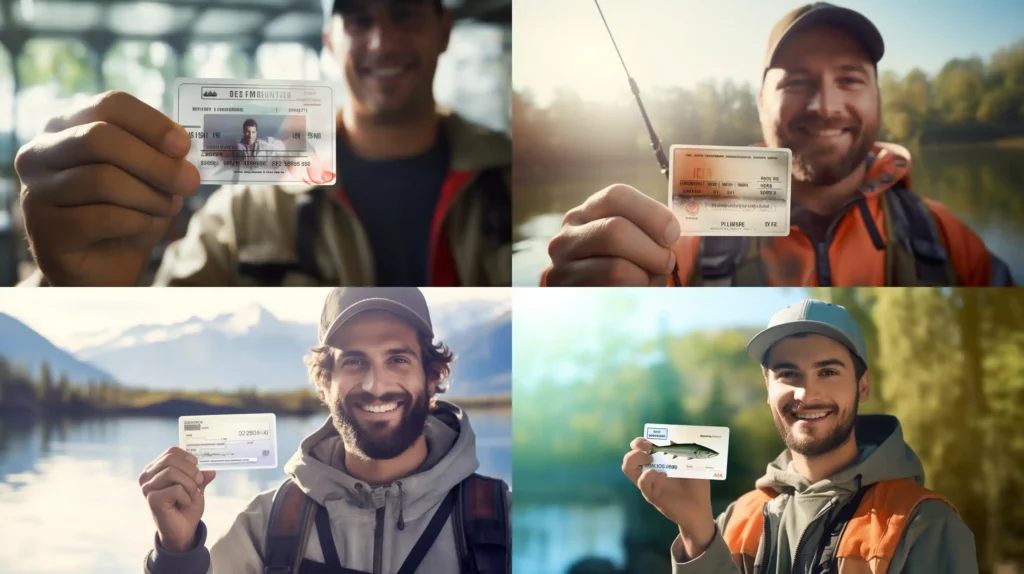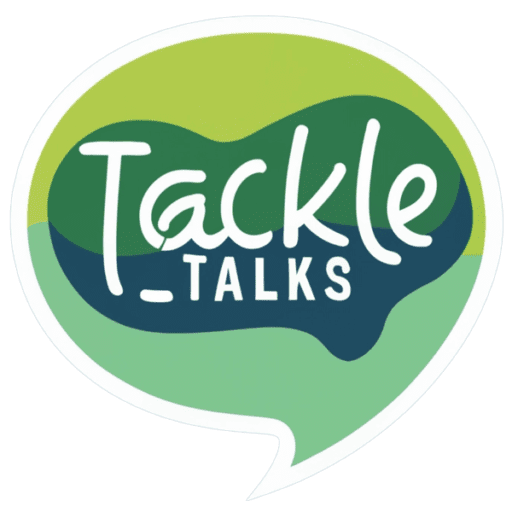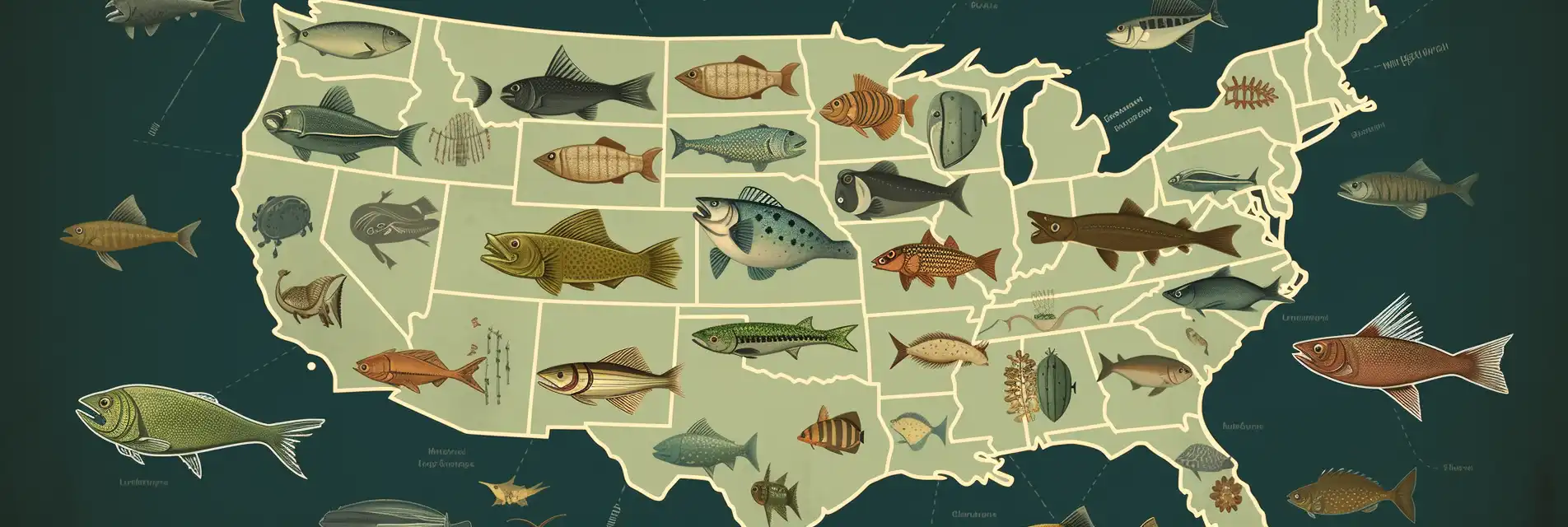Fishing is not just a recreational activity; it’s a bond with nature, a sustainable means of livelihood, and a testament to the balance of our ecosystem. The act of casting a line or setting a net goes beyond the thrill of the catch. It’s about understanding and respecting the intricate dance of aquatic life. This is where the importance of fishing licenses in the USA comes into play.
Brief about the Importance of Fishing Licenses
In the USA, before you head out to your favorite fishing spot, there’s a crucial step to undertake: obtaining a fishing license. This isn’t just a bureaucratic formality. It’s a commitment to conservation, a nod to sustainable practices, and a step towards ensuring that the waters remain teeming with life for generations to come. According to the U.S. Fish & Wildlife Service, the process of acquiring a fishing license is straightforward and directly contributes to conservation efforts. In most states, these licenses can be procured online, via phone, or at designated retail establishments.
Spotlight on Some States
Texas
In the Lone Star State, fishing enthusiasts aged 17 and above are required to possess a valid fishing license to engage in the activity in public waters. The state offers various licensing options including annual freshwater, saltwater, and all-water licenses, priced differently for residents and non-residents. Exceptions to this requirement include fishing from banks or piers within Texas State Parks and on the state’s annual Free Fishing Day, which falls on the first Saturday of June. Interestingly, Texas residents born before January 1, 1931, as well as youngsters below the age of 17, can enjoy fishing license-free.
Wisconsin
Wisconsin requires anyone aged 16 and older to purchase a fishing license. They offer a range of license durations including one-day, 4-day, 15-day, and annual licenses, with a special reduced price for first-time buyers, seniors, and juniors. Fishing licenses can be conveniently acquired online or at local sales outlets and Department of Natural Resources (DNR) Service Centers. The state also mandates additional licenses for certain fishing-related activities such as bait dealing and fish farming.
Michigan
Michigan mandates a fishing license for individuals aged 17 and above, with the licenses being valid from March 1 of a given year through March 31 of the following year. The state offers different pricing for residents, non-residents, and senior citizens. It’s worth mentioning that while adults assisting minors without a license must have a fishing license, those under 17 years of age are not required to possess a license but must adhere to all fishing regulations.
Florida
Fishing in Florida necessitates a license for all non-residents over 16 and residents aged between 16 and 65, with different licenses for saltwater and freshwater fishing. Certain species or locations may require additional permits or designations. The Florida Fish and Wildlife Conservation Commission sets various regulations including season, size, and bag limits for different fish species, which may change over time. It’s advisable to check the current rules before heading out to fish.
Minnesota
Minnesota’s fishing license requirements apply to all residents between the ages of 16 and 89, while non-residents aged 16 and above are required to purchase a license. The state offers a user-friendly mobile application, Fish MN, to access the latest fishing regulations, lake maps, and other pertinent information. It’s essential to note that certain exemptions apply, such as children under 16 and seniors over 90 who live in Minnesota being able to fish without a license.
State-Specific Fishing Licenses, Regulations, and Requirements
For a comprehensive understanding of fishing licenses, regulations, and requirements, it’s essential to delve into state-specific details. Below is a table of all states with links to detailed articles about fishing licenses for each:
The Role of Fishing Licenses in Conservation Efforts

Every time an angler purchases a fishing license, they’re making a direct contribution to conservation. These funds are channeled towards restoration projects, habitat protection, research, and education. The Sport Fish Restoration Program, for instance, has distributed billions in grant funds to state agencies since 1952, all aimed at enhancing the fishing experience while ensuring the aquatic ecosystem’s health. It’s a user-pay, user-benefit system, where anglers, boaters, and even manufacturers play a pivotal role in keeping our waters alive and thriving.
Why Do You Need a Fishing License?
Fishing, while a beloved pastime for many, is not just about casting a line and hoping for the best. It’s a regulated activity, and there are compelling reasons behind the need for a fishing license:
Legal Requirements in USA
Every state in the USA has its regulations concerning fishing, and most require a license for both residents and non-residents. Fishing without a license can lead to significant penalties, including fines and, in some cases, even jail time. It’s essential to be aware of and adhere to these regulations to avoid legal complications.
Contribution to Conservation and Research
The funds collected from fishing licenses play a pivotal role in conservation efforts. These funds are channeled into programs that support fishery management, habitat development, and the protection of endangered species. Moreover, they also finance research related to fish species, habitats, and the overall health of water bodies. By purchasing a license, you’re directly contributing to these vital initiatives.
Avoiding Hefty Fines and Penalties
No one wants to end a relaxing day of fishing with a hefty fine. In many states, fishing without a license can result in significant penalties. These fines are not just a source of revenue but serve as a deterrent to ensure that individuals fish responsibly and contribute to conservation efforts.
Types of Fishing Licenses in the USA
The United States, with its vast water bodies and diverse aquatic ecosystems, offers a plethora of fishing opportunities. But before you cast your line, it’s essential to understand the different types of fishing licenses available and which one is right for you.

Overview of Different Fishing Licenses
Every state in the USA has its own set of regulations and types of fishing licenses. These can range from:
- Annual Licenses: Valid for a year and suitable for those who fish regularly.
- Short-term Licenses: Ideal for tourists or occasional anglers, these licenses can be valid for a day or a week.
- Freshwater Licenses: Specifically for fishing in freshwater bodies like lakes, rivers, and streams.
- Saltwater Licenses: Required for fishing in the ocean or any saltwater body.
Special Licenses for Different Groups
Certain states offer specialized licenses catering to specific groups, ensuring that everyone has the opportunity to enjoy fishing:
- Seniors: Reduced fee licenses for the elderly.
- Veterans: Special provisions or discounts for those who have served in the military.
- Disabled Individuals: Licenses tailored to cater to those with disabilities, ensuring they can enjoy fishing without any hindrance.
Resident vs. Non-resident Fishing Licenses in USA
The criteria and fees for fishing licenses can vary based on residency:
- Resident Licenses: Typically cheaper and available to those who have been residents of a state for a specified period.
- Non-resident Licenses: For those visiting from another state. These are generally more expensive than resident licenses.
Special Provisions
Certain states offer additional provisions for specific groups:
- Military Personnel: Active-duty military members might be eligible for reduced fees or even free licenses in some states.
- Disabled Individuals: Beyond the specialized licenses, some states offer additional facilities like accessible fishing areas.
For a comprehensive understanding of the types of licenses and their provisions, it’s always recommended to check with the local Fish and Wildlife Department or the respective state’s official website.
How to Obtain a Fishing License in the USA
Navigating the process of obtaining a fishing license can seem daunting, especially given that each state has its unique set of regulations. However, the procedure is generally straightforward and designed to ensure that everyone can enjoy the sport while contributing to conservation efforts.
General Process Across States
While the specifics can vary, the general process of acquiring a fishing license in the USA involves:
- Choosing the Right License: Determine the type of license you need based on factors like the duration of fishing, type of water body (freshwater vs. saltwater), and residency status (resident vs. non-resident).
- Online Application: Most states offer an online platform where you can apply for and purchase your fishing license. This method is convenient and allows for immediate access to your license.
- Physical Locations: For those who prefer an in-person approach, licenses can often be obtained at designated retail establishments, local Fish and Wildlife offices, or other approved agents.
- Documentation: Ensure you have the necessary identification and documentation, which might include proof of residency for resident licenses.
Online Purchasing, Phone, or Retail Establishments
The digital age has made obtaining a fishing license more accessible than ever:
- Online: Most states have an official portal where you can apply for and purchase your license. This method is quick and often provides options for printing or saving a digital copy of your license.
- Phone: Some states offer a phone service where you can purchase your license and have it mailed to you.
- Retail Establishments: Sporting goods stores, bait shops, and even some department stores might be authorized agents where you can buy a fishing license in person.
U.S. Fish & Wildlife Service as a Resource
The U.S. Fish & Wildlife Service is an invaluable resource for anglers. It provides comprehensive information on fishing regulations, conservation efforts, and other relevant topics. Before heading out, it’s a good idea to check their website or contact them for any updates or changes in regulations.
Costs and Fees of Fishing Licenses in the USA
Fishing is an activity that brings joy to millions, but it’s essential to remember that it’s also a regulated activity. The fees collected from fishing licenses play a pivotal role in ensuring sustainable fishing practices and conservation efforts. Let’s delve into the costs associated with obtaining a fishing license in the USA.
Average Cost Range for Residents vs. Non-Residents
The price of a fishing license can vary significantly based on whether you’re a resident of the state or a non-resident. On average:
- Residents: The average annual license cost is approximately $25.42.
- Non-Residents: Those visiting from outside the state can expect to pay an average of $61.52 for an annual license.
It’s worth noting that these are average figures, and the actual cost can vary based on the state and the specific type of license you’re seeking.
Find the current price for fishing licenses in every state.
Factors Influencing the Cost of Fishing Licenses
Several factors can influence the cost of a fishing license:
- Type of Fish: Some states might have different licenses or stamps for specific species, like trout or salmon.
- Location: Fishing in certain premium locations or protected areas might come with additional fees.
- Duration: Short-term licenses, like those valid for a day or a week, will generally cost less than annual licenses but might be more expensive on a per-day basis.
- Special Licenses: Licenses for specific groups, such as seniors or veterans, might come at a reduced cost.
Image Suggestion: An infographic detailing the average costs of fishing licenses, with icons representing residents, non-residents, type of fish, and duration.
Conclusion
Fishing is more than just a leisure activity; it’s a responsibility. Every time an angler casts a line, they become a part of the ecosystem, and with that comes the duty to ensure its preservation. Adhering to state-specific regulations and obtaining the necessary fishing licenses is a testament to an angler’s commitment to sustainable fishing.
By understanding and respecting the licensing rules, anglers contribute directly to conservation efforts. These licenses fund projects that maintain fish populations, restore habitats, and ensure that future generations enjoy the same fishing opportunities.

Always remember to keep your Fishing License handy while fishing in the USA. Not only does it keep you on the right side of the law, but it’s also a badge of honor, signifying your contribution to the preservation of our natural resources.
FAQ
1. How do I purchase a fishing license?
A: Please contact the state agency that regulates fishing in your state for information on how to purchase a fishing license.
2. How much does it cost to buy a fishing license?
A: Fishing license prices vary by state, as does the type of fishing license available. Please contact the state agency that regulates fishing in your state for details.
3. I want to change my address for my fishing license. How do I do that?
A: Please contact the state agency that regulates fishing in your state to update your mailing address.
4. I am a non-resident and want to know if you offer one-day fishing licenses, and if so, how much are they?
A: Many states offer one or multiple-day fishing licenses; please contact the state agency in the state where you want to fish for more information on how to purchase.
5. How much do out-of-state licenses cost and how can I get one?
A: Out-of-state fishing license prices vary by state. Please contact the state agency in the state where you want to fish for details on cost and how to purchase.
6. Can you mail me my fishing license?
A: Please contact the state agency that regulates fishing in your state to obtain a physical copy of your license.
7. Do I need a fishing license to fish from the beach or pier?
A: Please contact the state agency that regulates fishing in your state to find out whether a license is required to fish from the beach or pier.
8. Do you sell saltwater fishing licenses?
A: Types of fishing license availability vary by state. Please contact the state agency that regulates fishing in your state for details.
9. Do active military personnel require a fishing license?
A: Types of fishing licenses, including those for military personnel, vary by state. Please contact the state agency that regulates fishing in your state for details.
10. Do retired people get a discount on fishing licenses?
A: Discounts on fishing licenses, including those for retired people, vary by state. Please contact the state agency that regulates fishing in your state for details.
11. I am on disability – do I require a fishing license?
A: Types of fishing licenses, including those for the disabled, vary by state. Please contact the state agency that regulates fishing in your state for details.
12. Do kids need fishing licenses?
A: Fishing license requirements for individuals, including for kids, vary by state. Please contact the state agency that regulates fishing in your state for details.


